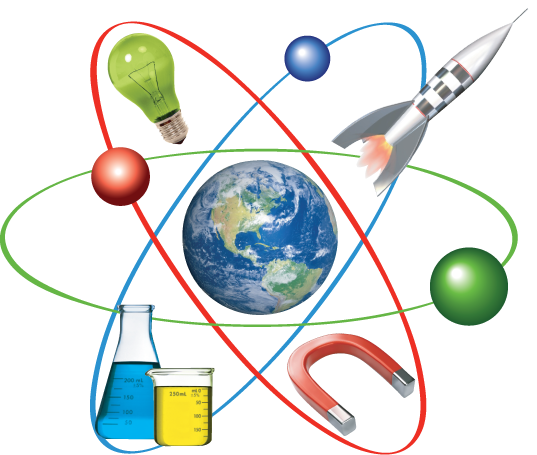Science: The Foundation of Knowledge and Innovation
Science is the systematic study of the natural world through observation, experimentation, and analysis. It is the foundation of modern civilization, shaping our understanding of the universe and driving technological advancements that improve our lives. From the smallest subatomic particles to the vastness of the cosmos, science explores the mysteries of existence and provides solutions to complex problems.

Branches of Science
Science is broadly divided into three main branches:
- Physical Sciences: This branch focuses on the study of non-living systems and includes subjects like physics, chemistry, and astronomy. It explains the fundamental principles of matter, energy, and forces that govern the universe.
- Physics: The study of matter, energy, and their interactions. It covers topics such as mechanics, electromagnetism, thermodynamics, and quantum mechanics.
- Chemistry: The study of substances, their properties, and how they react. Chemistry is further divided into organic, inorganic, physical, and analytical chemistry.
- Astronomy: The study of celestial bodies and the universe as a whole. It encompasses astrophysics, cosmology, and planetary science.
- Mathematics: The language of science, providing the tools and theories necessary for scientific analysis and discovery.
- Life Sciences: This branch deals with living organisms and their interactions with the environment. It includes biology, zoology, botany, and genetics.
- Biology: The study of life and living organisms. It explores topics such as cell biology, microbiology, and human anatomy.
- Zoology: The study of animals and their behaviors. It involves the classification, physiology, and evolution of animal species.
- Botany: The study of plants and their structures. It includes plant physiology, ecology, and agriculture.
- Genetics: The study of heredity and variation in living organisms. It plays a crucial role in medical research and biotechnology.
- Neuroscience: The study of the nervous system and brain function, essential for understanding cognition and behavior.
- Earth and Environmental Sciences: This field studies the Earth, its atmosphere, and the impact of human activity on the environment. It includes geology, meteorology, and environmental science.
- Geology: The study of Earth’s structure and processes. It examines rocks, minerals, earthquakes, and plate tectonics.
- Meteorology: The study of weather and climate. It involves forecasting and understanding atmospheric patterns.
- Environmental Science: The study of ecosystems and sustainable living. It addresses issues like pollution, conservation, and climate change.
- Oceanography: The study of oceans, their ecosystems, and their impact on the global environment.
Importance of Science in Everyday Life
Science plays a crucial role in our daily lives. From the technology we use to the medicines we rely on, scientific discoveries have transformed human existence. Some key contributions include:
- Healthcare: Advancements in medical science have led to vaccines, antibiotics, and life-saving treatments. Research in genetics and biotechnology has contributed to personalized medicine and disease prevention.
- Technology: Innovations like computers, smartphones, and the internet are products of scientific research. Artificial intelligence and machine learning are shaping the future of industries.
- Energy: Renewable energy sources like solar and wind power are developed through scientific study. Breakthroughs in nuclear energy and battery technology promise a sustainable future.
- Space Exploration: Science has enabled us to explore other planets, understand black holes, and even consider interplanetary travel. Missions to Mars, the study of exoplanets, and the search for extraterrestrial life are advancing our knowledge of the cosmos.
- Agriculture: Scientific advancements in agricultural science have increased food production, improved crop resistance, and reduced waste through modern farming techniques.

The Role of Science in Society
Science is not just about discovery; it plays a crucial role in shaping society. Governments and organizations rely on scientific research to make informed decisions on issues such as climate change, public health, and technological innovation. Scientific literacy is essential for individuals to make informed choices about their health, environment, and future.
The Ethical Side of Science
As scientific advancements continue to shape society, ethical considerations play an essential role. Issues such as genetic modification, artificial intelligence, and bioengineering raise moral and societal questions. Scientists and policymakers must work together to ensure that scientific progress benefits humanity while minimizing potential risks.
The Future of Science
As science continues to evolve, new fields such as artificial intelligence, genetic engineering, and quantum computing are emerging. These advancements hold the potential to revolutionize industries, improve quality of life, and address global challenges such as climate change and disease outbreaks. The development of nanotechnology, bioengineering, and space colonization presents exciting possibilities for the future. Future scientists will play a critical role in addressing sustainability issues, developing new medical treatments, and pushing the boundaries of human knowledge.
Conclusion
Science is an ever-expanding field that fuels progress and enhances our understanding of the universe. By fostering curiosity and encouraging research, we can continue to unlock new possibilities and improve the world for future generations. As we embrace the wonders of science, we open the doors to limitless opportunities and discoveries. Science empowers humanity to push boundaries, solve pressing challenges, and shape a better future for all.
The spirit of inquiry and discovery remains at the heart of scientific progress, inspiring new generations to explore the unknown and contribute to the betterment of the world. Through collaboration, innovation, and ethical responsibility, science will continue to be a driving force in shaping the future of civilization.


